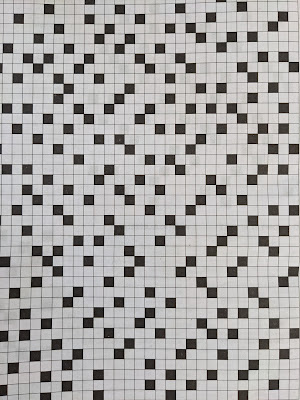Accidentals: Sham Gratification
 |
| Photo by Brannon Naito on Unsplash |
Humanity Sometimes feels justified in giving attention to people they don't actually want to give attention to. Presumably, if you give attention to anybody, then you gave attention to somebody, so your job is done, or at least that's what your "reptilian" brain would have you think.
Attention is usually given to what is valued. You may for example grant attention to somebody out of love or friendship. Maybe you felt a sense of kinship which pulled you into an exchange. These are fully human and justified motives for giving somebody attention. Giving attention also puts us a step closer to receiving attention. Surprisingly though, there is also unjustifiable yet completely human attention.
Humanity's innate desire to change the world can be obscured by its ability to recognize its impact. As humans, we have an innate desire to inflict, positive, change. We want to know that we had an impact on the world, a positive one. Our emotions serve as feedback loops for whether we successfully completed that mission. The "reptilian" brain however, cannot distinguish between fake and real stimuli. This creates a real risk for delusion, where we may feel like we successfully took action to change the world when in reality we have not!
Reality tv is just one example of this phenomenon. Viewers develop a sort of relationship with people in these shows. It makes sense that people feel happy when their stars are made happy and sad when things are not going quite right for their stars. Notice that by themselves, these emotional displays are not a problem; but, when we apply the concept of feedback loops, questions amass.
It is important to recognize the potential for an availability heuristic. People on screens might just happen to be easier to notice. They are at our fingertips, so to speak. Where you may have otherwise chosen to look for an opportunity to help somebody in real life, maybe spend time helping put together packaged lunch for the poor for example, you are feeling the same chemicals that you would feel then by simply watching events unfold in front of you. Being out there is where you should've felt those emotions, the ones that tell you that you successfully changed somebody else's world. Your "reptilian" brain, sadly in this example, falls prey to, potentially, the first thing that happened to find you i.e., come into your awareness sphere.
There are others out there that we want to care about that we can't care about if we delude ourselves to believe that our emotional connections to people that we may never form real connections with, i.e., stars, absolves us from taking action to change the lives of people we can form real connections with even if we never form emotional connections with, i.e., people we innately want to help.
If those we want to help were featured on screens, we would've formed emotional connections with them too. The simple occurrence of them not being featured on mediums that we choose to consume, does not absolve us of any responsibility we might, choose to, have to them. Feeling for somebody on camera does not absolve us from taking action simply because the events featured are "real". If we delude ourselves that way, we are allowing our inherited emotional feedback to obscure the fact that we took no action!
Now, in both cases there is no obligation. We are not responsible for others' wellbeing, but we are responsible to know that sympathizing, or empathizing if you're there, with somebody based on availability alone, does not mean that we successfully completed what we might've otherwise meant to do. Emotional connections are supposed to be biological tools for change.

